
Top 10: Zinkhaltige Lebensmittel
Lebensmittel mit Zink sind für Dich lebensnotwendig, da es sich bei Zink um ein unverzichtbares Spurenelement handelt. Sowohl das Immunsystem...

Einfache und komplexe Kohlenhydrate: Freund oder Feind?
Einfache und komplexe Kohlenhydrate spielen eine entscheidende Rolle in der Ernährung und sind eine Hauptquelle für Energie im täglichen Leben....

Moringa
Moringa erinnert vom Geschmack an Meerrettich und enthält neben Carotinen, Vitaminen und Aminosäuren auch Ballaststoffe und Mineralstoffe. Es soll unter...
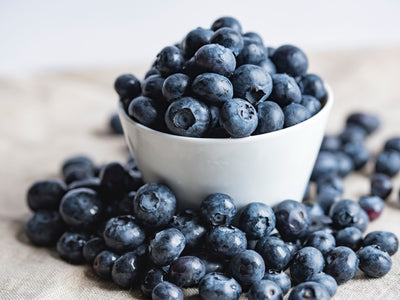
Natürliche Hautpflege zum Essen
Antioxidantien sind chemische Verbindungen, die unsere Zellen vor dem Altern schützen können. Sogenannte freie Radikale – auch reaktive Sauerstoffspezies oder...

Aminosäuren
Aminosäuren sind die Bausteine von Eiweißen, Hormonen und Enzymen. Sie wirken sich auf Deinen Stoffwechsel aus, helfen bei der Speicherung...
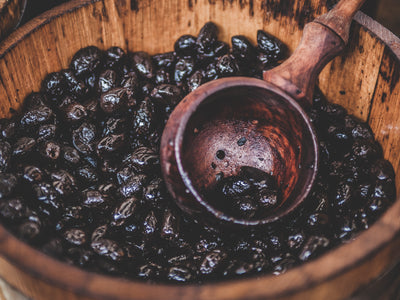
Testosteron
Vor allem als männliches Hormon bekannt ist Testosteron lebenslang wichtig. Es begünstigt eine hohe Knochendichte, wirkt sich positiv auf den...

Damit Strom fließt, wenn Schweiß läuft
Jedes Mal, wenn wir beim Sport schwitzen, verlieren wir Elektrolyte. Füllen wir unsere Reserven nicht schnell wieder auf, kann es...

Vegetarier und Veganer aufgepasst
Du bist Vegetarier oder Veganer? - Dann achtest Du sicherlich bereits auf eine ausgewogene und gesunde Ernährung. Es gibt dennoch...

Gerstengras
Gerstengras kann entweder zu Saft, Pulver, oder Tabletten verarbeitet werden. Es enthält zahlreiche Vitamine sowie die Stoffe Zink, Calcium, Kalium...

Schneller. Besser. Laufen.
Wenn Du beim Laufen so richtig an Deine Grenzen kommst, spürst Du in fast jeder Muskelfaser, was Dein Körper drauf...
Kuhmilch- Nicht für jeden verträglich
Kuhmilchunverträglichkeit, Kuhmilchallergie, Laktoseintoleranz – die Bezeichnungen sind nicht immer einfach auseinanderzuhalten. In diesem Artikel sprechen wir von 'Kuhmilchunverträglichkeit', wenn die...

5 vegane Lebensmittel mit besonders viel Eiweiß
Eiweiß bekommt man durch Fleisch, Fisch, Eier und Milchprodukte? - Das haben die meisten von uns so gelernt. Ganz richtig...

Glycin
Ausgangsstoff zur Bildung von nicht-essentiellen Aminosäuren, beteiligt an der Sauerstoffaufnahme durch das Blut, der Leberfunktion, der Produktion von Wachstumshormonen, dem...

Tyrosinhaltige Lebensmittel
Lebensmittel mit Tyrosin können Deine Konzentration sowie Dein Denkvermögen verbessern. Lies hier, welche Lebensmittel am meisten Tyrosin enthalten. Tyrosinhaltige...

Lutein- und Zeaxanthinhaltige Lebensmittel
Lutein und Zeaxanthin sind Carotinoide, die häufig gemeinsam in Lebensmitteln enthalten sind. Nahrungsmittel mit diesen beiden Carotinoiden können eine antioxidative...

Weizenunverträglichkeit
Noch ist sie vergleichsweise unbekannt – das zunehmende Bewusstsein für Weizenunverträglichkeit lässt aber immer mehr Menschen vermuten, dass sie unter...

Coenzym Q10
Das Coenzym Q10 gilt nicht nur als Mittel zur Hautstraffung. Es ist ebenso nötig, um dem Körper Energie bereitzustellen und...

...zum IgG4-Testverfahren
Du bist interessiert an Lebensmittelunverträglichkeits-Analysen und möchtest herausfinden, wie unser FOOD REACTION TEST funktioniert? Hier erfährst Du alles, was Du...

Mineralstoffe und Vitamine für die Haut
Die Haut ist Dein größtes Sinnesorgan und hat durchschnittlich eine Gesamtfläche von ca. 1,8 Quadratmetern. Sie beeinflusst Deine Gesundheit, Dein...

Zeaxanthin
Zeaxanthin ist ein Carotinoid, das wir über die Nahrung aufnehmen müssen, da unser Körper es nicht selbst bilden kann. Es...

Ideale Ernährung für Dein Training
Wenn Du Muskeln aufbauen willst, kommt es nicht nur darauf an, dass Du ausreichend Eiweiß zu Dir nimmst. Wir verraten...
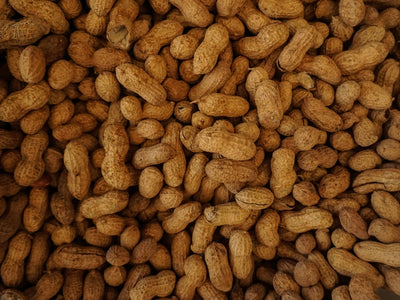
Wenn Lebensmittel gefährlich werden: Das Wichtigste über Lebensmittelallergien
Können gesunde Lebensmittel auch ungesund oder gar gefährlich sein? Kurzum, ja! Und zwar bei einer Lebensmittelallergie. Diese wird durch eine...

Stoffwechsel - Wie er funktioniert und was ihn ankurbeln kann
Unser Stoffwechsel ist entscheidend für die Steuerung der Energieverteilung im Körper. Aber weißt Du eigentlich, wie das alles wirklich funktioniert?...

Protein ist nicht gleich Protein
Proteine sind enorm wichtig, wenn Du trainierst und Muskeln aufbauen willst. Dabei kann unser Körper Nahrungsproteine unterschiedlich gut in körpereigene...

Magnesium
Als Mineralstoff zählt Magnesium zu den Elektrolyten. Der lebenswichtige Mikronährstoff kann von Deinem Körper nicht selbstgebildet werden und muss, wie...

Iss Dich gesund: Kann man das Immunsystem wirklich boosten?
Ein gut funktionierendes Immunsystem ist besonders wichtig, um uns vor unerwünschten Eindringlingen im Körper zu schützen. Gerade zur Erkältungszeit und...
6 Tipps für die Regeneration nach dem Sport
Wer mit verschwitztem T-Shirt vom Sport kommt, hat wahrscheinlich nicht nur hart gearbeitet, sondern dabei auch viele Mineralien, Spurenelemente und...

Eicosapentaensäure
Eicosapentaensäure (EPA) ist eine wichtige Fettsäure in unserem Körper, die unter anderem wichtig für unsere Herzfrequenz und unseren Blutdruck ist....
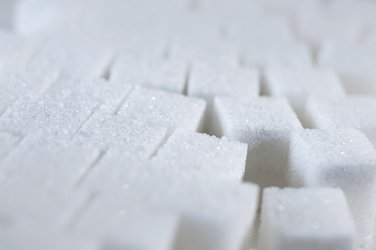
HbA1c-beeinflussende Lebensmittel
Es gibt bestimmte Lebensmittel, die Deinen Blutzucker schnell ansteigen lassen und dadurch Deinen Langzeit-Blutzucker-Wert, den HbA1C-Wert, erhöhen können. Andere Lebensmittel...

Vitamin-K-haltige Lebensmittel
Vitamin K ist das wohl am wenigsten bekannte Vitamin überhaupt. Dabei ist der Vitalstoff lebenswichtig und hat einen entscheidenden Einfluss...

Cholesterinhaltige Lebensmittel
Lebensmittel mit Cholesterin haben einen schlechten Ruf. Einerseits benötigt unser Körper Cholesterin für die Bildung von Hormonen und für die...

Schilddrüsenhormone
Wie funktioniert die Schilddrüse? Die Schilddrüse ist ein kleines Organ, welches durch die Ausschüttung von Hormonen unseren Stoffwechsel reguliert, abhängig...

Was braucht mein Körper wirklich?
Wenn man sich mit Ernährung beschäftigt, wird einem sehr schnell klar, wie komplex und zum Teil auch widersprüchlich das Thema...

Fatigue: Ständige Müdigkeit
Kennst Du auch diese Tage, wo es Dir einfach an Energie mangelt? Wo Du körperliche Aktivitäten am liebsten meiden möchtest?...

Geschmack: Können wir unsere Wahrnehmung beeinflussen?
Was wäre das Essen, wenn wir es nicht schmecken könnten? Für jeden, der sich diese Frage schonmal gestellt hat, wäre...

Gesundheitstrends: Gerechtfertigte Hypes oder doch lieber Back to Basic
Von Promis beworben, auf Instagram gehyped und im Internet weit verbreitet - die sogenannte Gesundheitstrends. Doch was steckt hinter den...

Übergewicht: Wenn Fett gefährlich wird
Die Waage zeigt zu viele Pfunde an und die Lieblingsjeans passt auch nicht mehr so richtig. Kommt Dir bekannt vor?...

Natürlich gegen eine chronische Entzündung
Unser Körper reagiert eigentlich auf alles, was wir verzehren. Das kann zum einen positive Resultate erzielen und zu mehr Gesundheit...

5 hervorragende Wege, wie (gesättigte und ungesättigte) Fettsäuren Deine Gesundheit beeinflussen
Fette und seine Bausteine, die gesättigten und ungesättigten Fettsäuren, spielen eine entscheidende Rolle in Deinem täglichen Ernährungsplan und beeinflussen maßgeblich...

Blähbauch - Woher er kommt und was ich dagegen tun kann
Für viele ein unangenehmes Thema, jedoch für mindestens genauso viele ist es ein Thema: Blähungen und Blähbauch. Ein vorübergehend aufgeblähter...

Cortisol - 10 Gründe warum ein hoher Wert des Stresshormons ungesund ist
Mit Stress musste wohl jeder schon einmal umgehen, das gehört einfach zum Leben dazu. Wenn Stress allerdings chronisch, also langfristig...

Wunderwaffe Schlaf: Warum wir mehr Zeit im Bett verbringen sollten
Langfristiger Schlafmangel kann sich negativ auf unsere mentale und körperliche Gesundheit auswirken. Dabei hat aber nicht nur die Schlafdauer eine...

Top 10 wissenschaftliche Tipps zur Überwindung des inneren Schweinehundes
Die folgenden 10 Tipps helfen Dir, Deinen inneren Schweinehund zu überwinden,Deine Gewohnheiten und Verhaltensweisen schneller und nachhaltig zu ändern undDeine...

Makro- und Mikronährstoffe: Was steckt dahinter?
Ohne Nährstoffe können wir nicht leben – wir sind also auf eine ausreichende Zufuhr durch unsere Nahrung angewiesen. Nährstoffe lassen...

Gute Fette - Böse Fette: Cholesterin
Herzerkrankungen sind die Todesursache Nr. 1 in der westlichen Welt. Durch widersprüchliche Empfehlungen und Informationen ist die Unsicherheit heutzutage jedoch...

Alkoholunverträglichkeit
Rötet sich das Gesicht nach dem Genuss von Alkohol oder bleibt der Kater tagelang erhalten, leidet der Körper unter einer...

hsCRP: Hochsensitives C-reaktives Protein - ein Biomarker für Entzündungen
CRP wird von Deinem Körper in der Leber hergestellt und ist ein Protein. Es ist nützlich zur Beseitigung von Erregern...

Tryptophan
Diese Aminosäure ist stimmungsaufhellend, fördert gesunden Schlaf und hemmt den Appetit in gesundem Maße. Sie kann sich also vielseitig in...
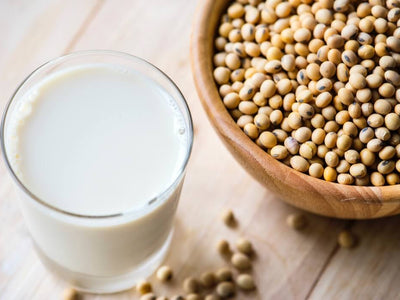
Tyrosin
Auch als L-Tyrosin bezeichnet ist diese Aminosäure besonders dann wichtig, wenn Du unter Stress stehst. Sie verbessert die Konzentration und...

Natriumhaltige Lebensmittel
Lebensmittel mit Natrium sorgen in Deinem Körper für die Regulierung des Wasserhaushaltes und des Säuren-Basen-Gleichgewichts. Lies hier, welche Lebensmittel am...


